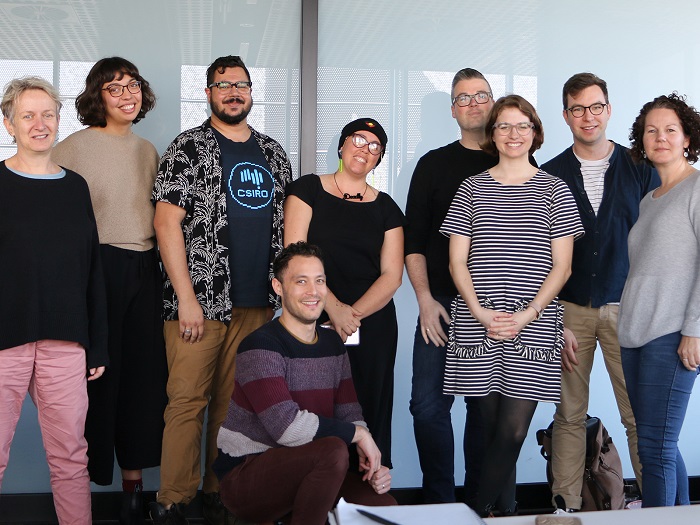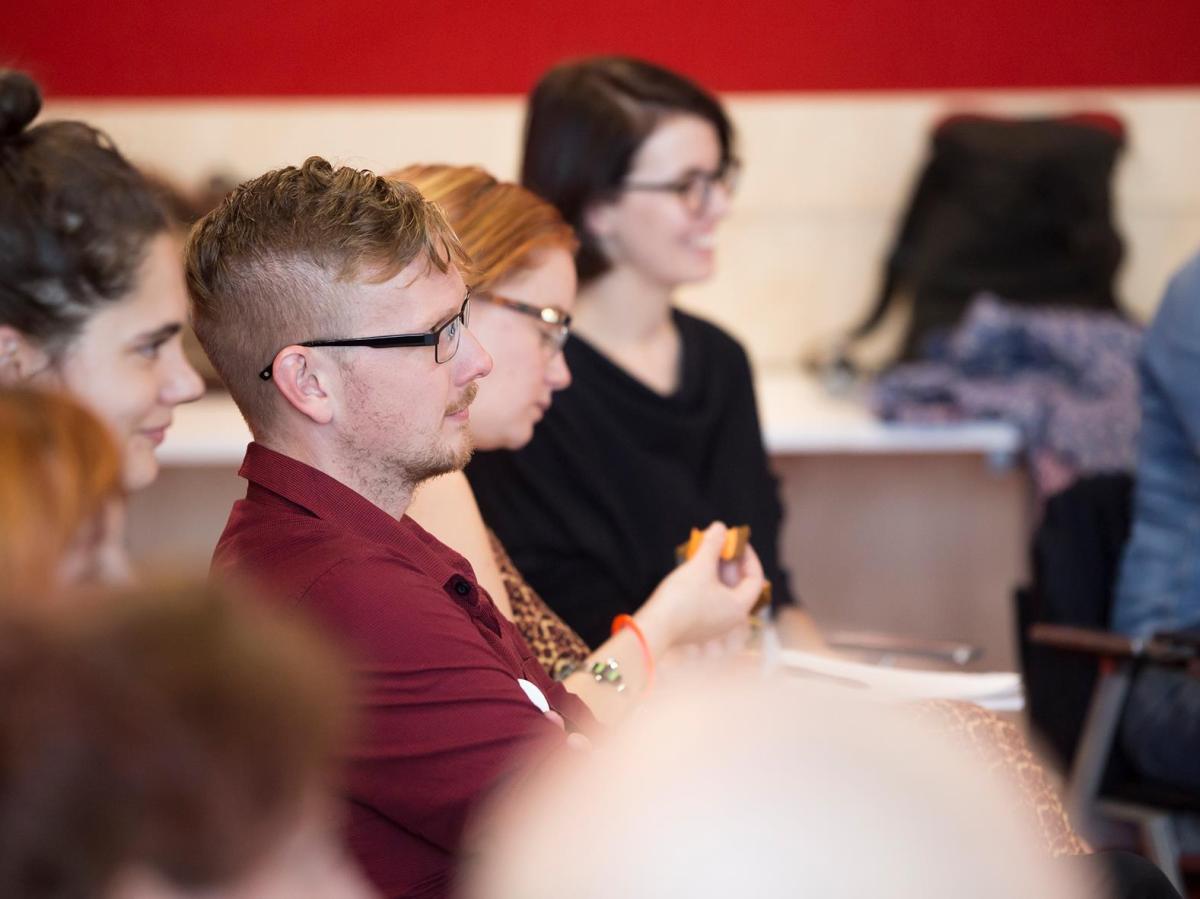NIDA’s Master of Fine Arts in Cultural Leadership participants. Supplied.
People look to their leaders to pave the way for positive change.
In the arts industry we look to our cultural leaders to illuminate different ways of thinking and new ways of living in the world.
But in a constantly changing and often conflicted society, how do contemporary arts leaders rethink their modus operandi to ensure they are at the forefront of an evolving global culture?
‘The core principles in good leadership have remained the same: trust, preparedness for risk, vision, integrity – all are still what makes for a really good leader,’ said Karilyn Brown, Course Leader of the Masters of Fine Arts in Cultural Leadership for NIDA.
‘Having aspirations, initiative, wanting to innovate – those are the principles that you never want to lose in a leader.
‘What’s changing is very much around the evolution of our society, and how arts and culture are evolving to drive and respond to our new social and environmental landscapes,’ Brown said.
SHIFTING THE CONVERSATION
By changing the ways we have cultural conversations, future leaders can counter the uncertainty brought about by rapid change.
‘There is a stronger sense of wanting to give agency to engagement. And that is shifting from a form of participation solely focused on the audience; it’s now a much more integrated, nuanced and sophisticated conversation,’ said Brown.
Having worked as a cultural leader nationally and internationally in the visual arts and performing arts sectors, Brown emphasised the need to bring about more inclusive and innovative arts practices in the future.
‘We still have a very strong western-based infrastructure across all our art forms, so it’s about asking, how are we making it more inclusive? How are we changing that model? Where are we creating new opportunities for new voices?
‘Change doesn’t happen overnight but if we can get more organisations and individuals who have the wherewithal and capacity to introduce change we will see much more happening, and quite quickly.’
Brown’s knowledge and passion extends to guiding future leaders through NIDA’s MFA in Cultural Leadership.
‘I think one of the challenges facing us is how are emerging and mid-career practitioners getting a foothold in the current infrastructure? And how are our senior leaders proactively creating opportunities for our future leaders, allowing them to test, hone and implement new ways of working and engaging through arts and culture?’

NIDA’s Masters of Fine Arts in Cultural Leadership, 2018 cohort, with guest presenters Alison Murphy-Oates (centre) and Georgia Mokak (second from left). Supplied.
A part-time two and a half year program, NIDA’s MFA in Cultural Leadership is designed for mid-career arts practitioners who want to expand their leadership knowledge. The course isn’t restricted by discipline.
‘What I love about this course is that the students can be quite eclectic,’ Brown said. ‘We have students from the performing arts, as well as visual arts, creative industries, policy and government, museums and libraries – so it’s really one of those courses that is an absolute catalyst for where you will go as a leader in the broader cultural context in the future.’
Tailored specifically for each individual’s aspirations, the course is a fundamental tool for equipping future cultural leaders.
Skills in cultural transformation and sustainability, governance, advocacy and cultural policy and practice are investigated in a peer-to-peer integrated environment, which allows future leaders to reassess the needs of all people in our changing culture.
‘Find your niche, find your area where you can excel, be dynamic and make a difference,’ Brown concluded.
To learn more about NIDA’s Masters of Fine Arts in Cultural Leadership visit: nida.edu.au/courses/graduate/cultural-leadership





